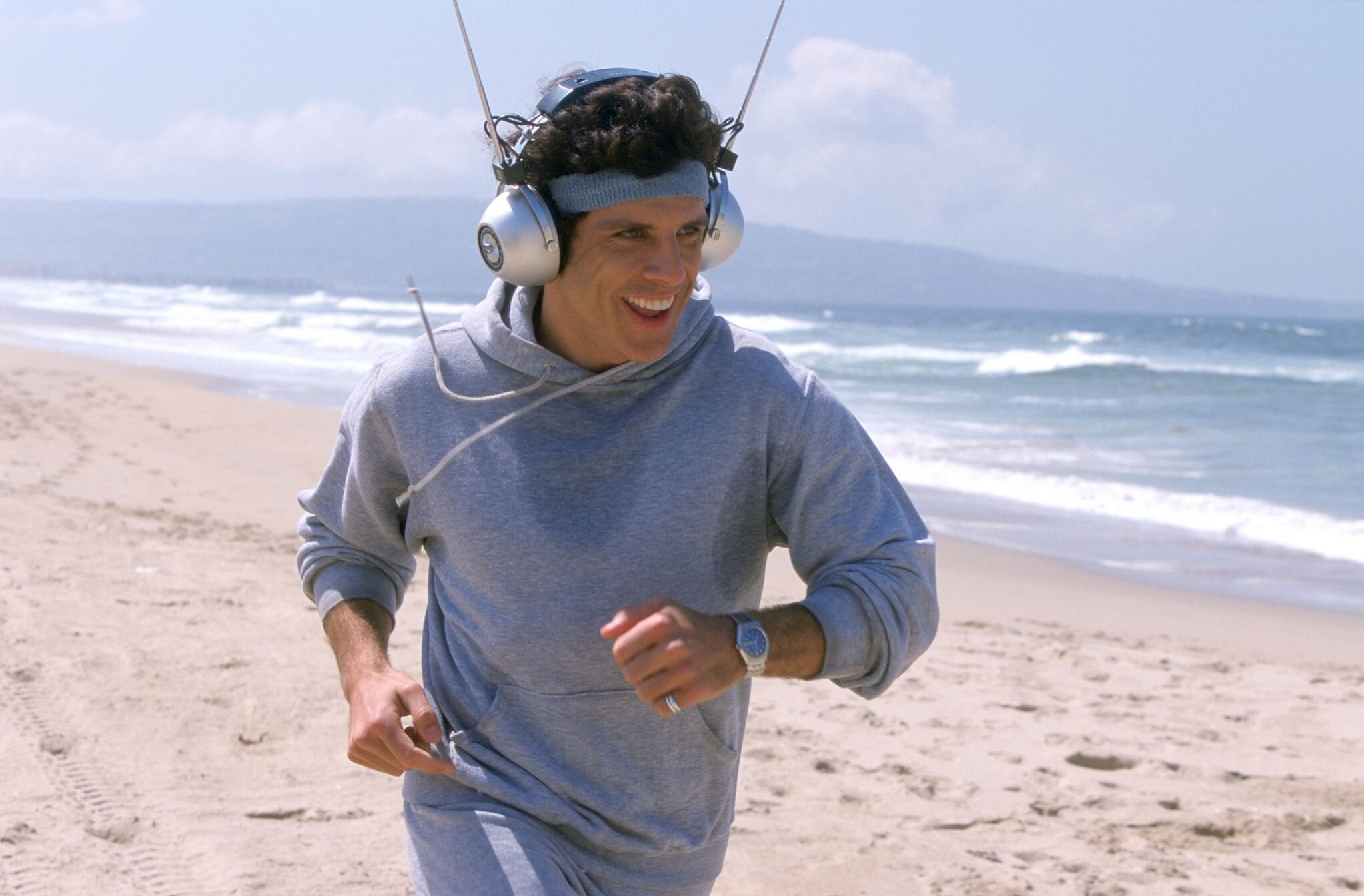Lose yourself in the music: music’s effect on strength training
A Review and Consideration of Application By Joe Stanek
Background: We’ve all got that song that pumps us up. A little Eminem and maybe some Fort Minor always score my way to the gym. It makes me feel so amped and ready to lift some heavy weight. Music is as much a part of my workout as is the sets and reps I have planned for the day. In fact, I’d say it is pretty safe to say that all of us have an amazing connection to our music. But what does the scientific world have to say about music? Why is using your own music not allowed at most powerlifting meets? And can music possibility be used as another tiny training variable? Let’s delve into some science!
Purpose:
This review will attempt to analyze the impact of music on the expression of maximal strength.
Selection Criteria:
For this review, the studies and articles were selected based on the inclusion of analysis of various kinds of music on strength and power in resistance exercise. In addition, studies were also chosen based upon the span of full-text access of Syracuse University to allow for appropriate analysis. As such some studies that could have been used were not.
Literature:
Karageorghis(1996) studied on 50 subjects (25 males, 25 females) measuring grip strength after listening to stimulative, sedative, and no music. Significantly higher strength scores were found after subjects listened to stimulative music compared to no music and sedative music. Also, sedative music produced significantly lower strength scores when compared to no music.
Crust (2004) This study tested the effects of exposure to self-selected motivational music both prior to and during performance of a muscular endurance task. 27 male undergraduate students in sports science completed an isometric weight-holding task on two separate occasions while listening either to self-selected motivational music or white noise. Participants had significantly longer hold times while listening to music over that of white noise. In addition, music played during the task yielded longer hold times than playing music just before the task. These results suggest music played during a test of muscular endurance can increase performance, but listening to music before such an activity may not have carry over.
Biagni (2012) and colleagues wanted to investigate the effects of self-selected music on strength, explosiveness and mood. Twenty resistance trained men completed three sets to failure with 75% of their bench press 1rm and a squat jump with 30% of their 1rm, once while listening to self-selected music and once while listening to no music. Subjects reported their profile of mood states and RPE. Results showed no significant differences in RPE and reps to failure in the bench press between states, however, in the squat jump, the takeoff velocity (SSM-2.06 ± 0.17 m·s(-1); NM-1.99 ± 0.18 m·s(-1)), rate of velocity development (SSM-5.92 ± 1.46 m·s(-2); NM-5.63 ± 1.70 m·s(-2)), and rate of force development (SSM-3175.61 ± 1792.37 N·s(-1); NM-2519.12 ± 1470.32 N·s(-1)) were greater with SSM, whereas RPE (SSM-5.71 ± 1.37; NM-6.36 ± 1.61) was greater with NM. The studies results show that listening to SSM may increase acute power.
Summary of Findings:
The literature suggests that music indeed has a performance enhancing effect, namely towards power and muscular endurance. Though one study did look at a form of muscular strength (bench pressing to failure), further research must be done to confirm a direct link between music and increased expression maximal of strength.
Discussion and Possible Application:
Looking over the research for this one was very cool. Music has always held a special place in my heart as a choir nerd. There are a lot of excellent takeaways from this research that we can apply to our own training.
First, there seems to be a commonality amongst these studies showing that self-selected music has the best effect on performance during resistance training. This is an excellent answer as to why powerlifting meets do not allow the lifters to use iPods or any other kind of device during their lifting. (RAW Unity and other federations at least play a song of the lifters choosing, however.) Of course this makes the most sense-music that you relate to and get the most meaning from is likely to elicit the best response. Music is like a legal, acute steroid in that you can use it to boost your performance. Some might go as far as to say that music allows for a higher expression of strength than in meet conditions. It is very possible that the difference in music could be one of the environmental constraints that prevent lifters from replicating their all-time gym PRs (which are often higher) in a meet.
“Music is like a legal, acute steroid in that you can use it to boost your performance. Some might go as far as to say that music allows for a higher expression of strength than in meet conditions.”
Building upon that point, perhaps music can be used as another controlled variable in training. Thinking about the concept of specificity as we get closer to a meet, perhaps choosing to leave the headphones off during our sets would be a good idea. At most, maybe the use of an external speaker and random music (such as a random playlist generated by Spotify or Pandora) would be best. This ties into replicating meet conditions as much as possible (ie using your singlet in training, practicing rack commands, etc.) Practicing in this way as one gets closer to the meet will better prepare you to lift your best.
Which type of music is best then? The literature found that “stimulative” music had the best effects. Simulative is a rather ambiguous word, but I would guess something like hardcore rock, rap, metal, or even epic instrumental music would do the trick. Whatever elicits the strongest response from you is the best choice. That is why it is good to lift to songs that speak to you. On the opposite end, stay away from sedative music, as it actually produced worse results than that of no music. (Although it would be really cool to see if you can push past being sedated in training, just another cool self-experiment idea.)
Lastly, a point that should be taken from the research is that, though the effects of music during a set are greater than music before a set, it is still better than none at all. As such, even if you choose to not listen to music during your sets, you can listen to that one song right up until your ready to start that set, and it will still help you. As such, in a meet or in training do not forget your music device as they can really still help you.
Constraints:
Of course the biggest constraint with music is simple- though music is shown here to seem to be some kind of ergogenic aid, it is different for everyone. Different music will elicit different responses for each person. Thus, the various studies results cannot be 100% telling of music’s effects.
On top of that, this presents the idea of having music playing at meets and what kind should be used. Since music does provide different levels of aid to each individual, is it fair to play seemingly random music? Perhaps a lifter is attempting a record and then a song comes on that they often listen to in the gym for their heavy sets. The mind is a powerful thing. I am willing to bet that the lifter would receive a good amount of aid from the music in that case. Now change things up and say a song came on that saddened the lifter and they miss their record. Is that fair?
One last constraint is the idea of repeating the same songs during training. As John Bosse of Barbell1 often points out on his podcast (shout-out to John for inspiring this article with his reviews of workout music) it’s a good idea to get into the habit of listening to your same songs as you go to the gym, get ready to lift, and rest between sets. It helps keep your mind focused in on the lifting. But is this a good thing in regards to powerlifting? At a meet you will not have that same level of concentration. Your nerves will no doubt be high and there will be at least a small crowd and three judges watching you. Could that habit hurt you in this case since you will not be able to follow your routine exactly?
Overall, music has both its advantages and disadvantages, but if used correctly, much like your other tools in the toolbox it can improve your performance for the better.
Thank you for reading,
Editor’s Note:
Music can have a profound effect on our performance, and I’m sure we’ve all been in the experience of better-than-normal performance because of music. I think there’s a few key variables to keep in mind. The music has to generally be “special” for us to get that extra level of performance enhancement above and beyond generic rock/rap/whatever music. I think too, a lifter’s personality can sway the effect of music. Some lifters may have a stronger attachment to music, maybe a more suggestive or intense personality, and as a result get a larger effect from music. That same person might get a large effect from a cheering crowd at a meet. Different lifters may just not be as affected by the sways of music.
It’s interesting to note that Raw Unity Meet (RUM), a national level powerlifting meet in the USA, realizes this effect and allows lifters to self-select a song to listen to during their lift…creating a real and tangible boost in performance not normally used in any other federation I’ve observed.
Bryce Lewis



